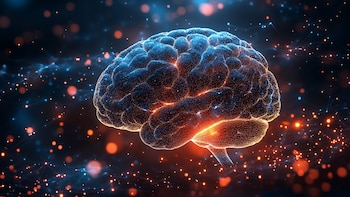








One of the addictions that receives less visibility is alcoholism. Let’s look at some data on the magnitude of the problem: according to different sources, the Argentina It is the first or second country in alcohol consumption in Latin America, where Around 8,000 people die from alcohol-related pathologies.
This figure is if we do not take into account that, in traffic accidents, those related to alcohol consumption are overwhelmingly higher than those that are not, or acts of domestic violence, or various forms of violence.
Contrary to popular belief, it is not drugs that are the greatest danger in criminal acts, but alcohol, which, of course, serves as income into the consumption of more “problematic” substances.

There is, however, a cultural bias and that is that alcohol has been part of our culture since the beginning of time, since it was even a way to hydrate in times of limited access to uncontaminated water sources.
On the other hand, and driven by a strong and powerful industry, positive narrative regarding alcohol, showing it to consumption as a means of belongingto a group or even to a culture, even foreign.
The festival of Saint Patrick, quite foreign to the festivities of our country, or the culture of “pints” in “pubs”, are examples of the search for belonging through alcohol.

The biggest drawback is that the consumption of a toxic substance, ethanolsince that is alcohol, particularly important at the level of the nervous system, is no longer trivialized, but denied in an extraordinary way. This is how the tendency arises to think about healthy or safe doses of alcoholincreasingly larger.
In this way, many people consume considering that alcoholism It is something linked to extreme consumption situations, but we can see in the alcohol level in traffic controls, where percentage rates that indicate a severe degree of poisoning.
However, the subject in the previous moments, while consuming, is not aware of the consequencesand the dangers in which he is only according to his perception, socializing. As if he progressive cognitive impairmentit was not important until dementia arrived.

That leads to the question we are asked in the consultation: How much alcohol is healthy or harmful? This topic has been widely debated for years: Is there a “safe” amount of alcohol that can be consumed without significant health risks? In recent times and based on multiple publications, the answer suggests that any amount of alcohol can be harmful, in the following areas:
1. Risk of cancer: Alcohol has been classified as a Group 1 carcinogen by the International Agency for Research on Cancer. This means that there is enough evidence to say that alcohol can cause cancer in humans. The most common types of cancer associated with alcohol consumption include breast, liver, colon, and esophageal cancer.
2. Cardiovascular diseases: This is a particular issue, since some studies have suggested that moderate alcohol consumption, especially red wine, could have benefits for cardiovascular health, but today the evidence is considered inconclusive and somehow the same benefits are achieved with specific diet, exercise and eventually the supplement of polyphenols, among which are, for example, resveratrol (non-flavonoid) and quercetin (flavonoid). As both are found in red wines, moderate consumption (maximum, one glass a day) is said to be healthy. Other literature indicates that despite these products, the effect is negative.

3. Liver damage: Although serious liver diseases can occur, such as cirrhosis and alcoholic hepatitis, even moderate consumption alters the ability of the purifying laboratory that is the liver to function properly, leading, for example, to inflammatory phenomena of all kinds.
Finally, those that are probably most obvious are the mental and behavioral problems. Perhaps this is the core of the issue because neurological effects and consequently behavioral, of all kinds. The presence of specific paintings such as anxiety, depression, sleep disorders is clearly proven, as well as, in particular, risk behaviors linked to the aspect of alcohol as a depressant of the nervous system.
The effects can be classified as short-term and long-term. The problem in the relativization of consumption is that short-term consumption is considered almost part of normality within our culture and thus somehow harmless and reversible. Thus, in young people, a binge seems to be something without subsequent consequences and “recreational”, an aspect elevated to the altar of hedonism.
The short term effects are:
- Cognitive impairment: Even small amounts clearly impact mental functions, initially causing a release of functions, talkativeness, speed of thinking, etc., but consequences are quickly seen on the ability to concentrate or orientate and remember.

- Coordination and balance: Although it is often considered something almost cheerful and part of the intended consequences, difficulties with coordination in space, measuring distances and difficulty in fine motor skills can be reflected tragically in traffic accidents, in risk behaviors etc.
- Mood and behavior: The short-term effects that manifest in the behavioral area can range from disinhibition with consequences linked to the loss of inhibitory brakes with responses of mood changes, from elation to aggressiveness.
The long-term effects are more complex:
- Brain Damage: Chronic alcohol consumption can cause irreparable neuronal damage. A known condition is Wernicke-Korsakoff syndrome, which is an encephalopathy characterized by severe memory problems, among several other symptoms, but which can even lead to coma and death.
- Neurotoxicity: Perhaps the big trap with alcohol is that we forget that it is neurotoxic. This involves neuronal damage and death. The alterations in the structure, evident in neuroimages, ensure consequences of different severity and impact, depending on the areas in which this neuronal loss has occurred.

- Mental health problems: With prolonged use of alcohol we see everything from depression and anxiety, to psychotic symptoms and dementia syndromes.
On the other hand, the effects at the social, family, work levelentry into the world of addictions of other types and the inability to control consumption are evident. Like other types of addictions, the subject enters a world in which he denies the pathology and, in many cases, hides reality behind fantasies and lies to those close to him, but even more seriously to himself.
Although moderate alcohol consumption may seem harmless, evidence suggests that Any amount can be harmful to health. The World Health Organization (WHO) has stated that there is no safe levele alcohol consumption and emphasizes that the health risk begins from the first drink and increases with the amount consumed.
On the other hand, there are, as in other addictions, in which the approach model is harm reduction, various proposals such as intermittent days, quantity reduction based on alternative consumption, smaller volume containers, as opposed to those that in certain areas exceed one liter, etc.

In that sense, the month of October in some countries is “Sober October” proposed by an association fighting cancer in the United Kingdom, a kind of challenge in which more people are expected to participate and tell their stories. experiences in that pilot month, how your life has changed.
The measures proposed are to start by finding out about the real risks of consumptionunderstand when you are entering a addiction to a psychoactive product. If you decide to consume alcohol, look for the moderation. There are various proposals regarding what is moderate, but it may be no more than three days with no more than two units of measurement, for example. Maintain days of sobriety, in any case. Look for healthy alternatives, such as non-alcoholic drinks, constantly hydrate yourself and not with alcoholic drinks, and from now on approach the subject with the care that implies that in case of doubts you should consult a professional.
* Doctor Enrique De Rosa Alabaster specializes in mental health issues. He is a psychiatrist, neurologist, sexologist and medical examiner.